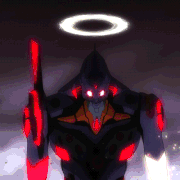|
Tuiri posted:
its depressingly common alas
|
|
|
|

|
| # ? Apr 16, 2024 21:18 |
|
i am the baby thrown out with the bathwater
|
|
|
|
Lex Neville posted:i am the baby thrown out with the bathwater your emotional and irrational response to even basic level textual criticism certainly counts as infantile
|
|
|
|
that's rich, considering what happened a page ago take a joke, Mel, and drop the condescension
|
|
|
|
Lex Neville posted:that's rich, considering what happened a page ago never I will drop the condescension when I don't have to explain the basics of criticism every few weeks to dudes getting buttmad that something bad was said about a book they like Mel Mudkiper fucked around with this message at 18:02 on Jan 11, 2019 |
|
|
|
To be fair to Mel, they have been a fairly constant fixture in this thread and has spent a lot of time, both explaining these concepts in thread as well as providing some recommended reading for our individual improvement in the area. If anyone has earned the right to condescend it's him.
|
|
|
|
I also try not to be a prick about honest questions or thoughtful disagreement for example Duck Rodgers posted:Perhaps I'm confused, but you seem to be talking about the author a lot. Is it a difference between the Author, and an author? Or are you breaking your own rule? V. Illych L. posted:uh, getting the feeling that you're being a little all-or-nothing about this V. Illych L. posted:it seems to me as though one could make the point that effectively communicating the nastiness of racism is most valuable when it communicates to racists, at least those that may be driven to reconsider such as the likely audience for your typical dixieland novel These are all examples of dudes who disagreed who I responded civilly to. I get that ideas need to be explained, and even if they are explained, people may not agree with them. I am happy to answer and walk through with dudes if they want to discuss the topic. I become a prick when people respond with stuff like "oh so you think all books by white people are bad" or whatever.
|
|
|
|
The discussion about white saviors and the issues with Tom's journey in TKaM are interesting, and I don't necessarily disagree. I still think that Scout's coming of age story, and the various threads that make up more than half of the novel makes it worth reading.
|
|
|
Mel Mudkiper posted:Its not possible to critique the book from a political or sociological perspective without examining the place of the text within society
|
|
|
|
|
still not convinced that a novel whose project is admitted to be legitimate can be accused of being bad because its project is not better like, i get the point that it's feeding into a doctrine of anti-racism which you see as misguided, but that seems to be a matter, more or less of fashion it seems to me as though the realistic choice here is not this book or a better book, it's this book or nothing - lee's overarching project and framing devices rely so much on the white perspective that i can't really see any way to do what mel wants, and i very much doubt that lee could have written anything else than that white perspective at this point one could say ok then read someone else, but that again makes little sense because people have certain preferences/imo it's a good enough novel for reasons of prose and structure and other elements that it's not really immediately replacable effectively the end point of that critique would be simply delegitimising white objections to racism because of what amounts to indelible racial loyalties, which is really iffy, even before really going into the sheer weirdness that is american racial ideology
|
|
|
|
Mel Mudkiper posted:never  but it was obviously a reductive platitude poking fun at a discussion about reductive depictions. I don't see how that makes me buttmad or would require you to explain the basics of literary criticism, so I'll daringly assume you aren't talking about me, but please humour me: what about it was emotional and irrational to you? but it was obviously a reductive platitude poking fun at a discussion about reductive depictions. I don't see how that makes me buttmad or would require you to explain the basics of literary criticism, so I'll daringly assume you aren't talking about me, but please humour me: what about it was emotional and irrational to you?
|
|
|
|
Lex Neville posted:
it wasn't you I took it to be a statement agreeing with the implied idea that you couldn't critique TKAM without wholly delegitimizing it AKA throwing the baby out with the bathwater V. Illych L. posted:effectively the end point of that critique would be simply delegitimising white objections to racism bingo as long as the primary white narrative of racism is to frame it as a moral failure and not institutional, the best course of action is to try and weaken its grip over the collective consciousness Mel Mudkiper fucked around with this message at 21:30 on Jan 12, 2019 |
|
|
|
i do not agree that the moral case against racism is irrelevant e. to elaborate: i accept and agree that the republican party is much worse than the kkk re: racism even though they are personally much less racist. discrediting the kkk is still a worthy cause V. Illych L. fucked around with this message at 23:03 on Jan 12, 2019 |
|
|
|
I think it's pretty clear TKaM is flawed in many ways, a lot of which have already been discussed at length in this thread, but I don't think its attempts "ultimately fall flat" and I'm not sure I subscribe to the notion thatMel Mudkiper posted:by having Atticus defend an innocent black man and fail, the novel is expecting us to admire the nobility of what Atticus attempted and the realization for Scout about how unfair the world is. It's been years since I last read it so I'll be the first to admit I may be way off the mark, but I don't remember feeling any admiration towards either (or that that was expected of me). I'd rephrase this as: The whole point is that by having Atticus defend an innocent black man and fail, the novel uses the futility of that exercise to illustrate how the status quo is hosed to such an extent that the effort of an individual won't even begin to shake its foundations. I mean, I understand the white-saviour reading, but at the same time that exact futility undermines said admiration for Atticus. So it's bleaker than that. Following the admiration for Atticus' nobility to its logical conclusion, we realize that any praise is devoid of substance anyway, because 'the system' is too hosed for it to have made a difference - and that to me is what it's trying to convey. Frankly, ending that train of thought early at "oh so we're supposed to admire this guy now eh?" feels a bit like something a literature student with a tendency to go against the grain would do, because no positive critical reading I've ever come across concludes with "he tried and she learned, we should all be more like these guys", which is what the white-savior complex accusation (theoretically rightfully) dismisses but at the same time both necessarily and deliberately limits itself to. I don't mean that personally, of course. I just don't think that the meaninglessness of admiration and what that meaninglessness entails can be left out in either reading. idk, my memory of it is hazy and I do agree that the text could/should have been more "thoughtful in its attempts to humanize its black characters", but, from memory, I wouldn't go so far as to say that it "ultimately falls flat", let alone that white nobility is the/a focal point. I should probably re-read it though 
Lex Neville fucked around with this message at 22:49 on Jan 12, 2019 |
|
|
|
V. Illych L. posted:i do not agree that the moral case against racism is irrelevant I never said it's irrelevant, I said it's been given disproportionate power in the social consciousness because it is the least threatening to the status quo. I am not saying no novel can speak to white morality, any more than a feminist would say no novel can a woman as an object of sexual desire. The issue is that these narrative tropes are so entrenched that they must be challenged so that their fossilization in the public consciousness can be eroded. Lex Neville posted:I think it's pretty clear TKaM is flawed in many ways, a lot of which have already been discussed at length in this thread, but I don't think its attempts "ultimately fall flat" and I'm not sure I subscribe to the notion that
|
|
|
|
.
whatevz fucked around with this message at 03:26 on Apr 25, 2022 |
|
|
|
Something Happened has that same wonderful, bizarre feel that Catch 22 had, where it seems like we're following someone that's not quite all there. Of course, Bob Slocum isn't quite there it seems like. I'm only a few hundred pages in, but I have a bad feeling I'm reading someone's slow descent into going postal, as his confessions and benign naivety and confusion at the world turns into how much he longs to be rid of his idiot son. There's also the unfortunate fact that I can read a lot of myself in him That same "I don't know what's going on but if I sit here pretending everything is fine eventually I won't have to worry about it" reaction to things is something I've done myself quite a bit. It's not got the same existential terror aspect that CoD had, but again, in only part way through it so far.
|
|
|
|
Okay, wow. This started to get dark(er) way faster then I was expecting.
|
|
|
|
"how can I tell my daughter she is the most marvelous, beautiful teen-age girl in the whole world when we both know she isn't" Jesus christ. I think I need a break from this. Is Something Happened going to level off at some point, or is it just gonna keep getting worse?
|
|
|
|
It's really unique in how unrelentingly agonizing it is to read.
|
|
|
|
Lex Neville posted:I think it's pretty clear TKaM is flawed in many ways, a lot of which have already been discussed at length in this thread, but I don't think its attempts "ultimately fall flat" and I'm not sure I subscribe to the notion that God dammit I knew I was forgetting about something. What I will say about your analysis is that it is a totally valid and good analysis of the text. As I said before, a text can have multiple readings, and the reading that Atticus' failures are meant to speak to the impenetrability of systemic injustice and the impossibility of one good man changing things is a strong one. what I want to respond to in particular in this part quote:Frankly, ending that train of thought early at "oh so we're supposed to admire this guy now eh?" feels a bit like something a literature student with a tendency to go against the grain would do, because no positive critical reading I've ever come across concludes with "he tried and she learned, we should all be more like these guys", which is what the white-savior complex accusation (theoretically rightfully) dismisses but at the same time both necessarily and deliberately limits itself to. Because this is where things become muddy for all of us. We seem to speaking as if we both feel that the interpretation that we put forward is the most commonly accepted interpretation by society at large. The problem with this, for both of us, is that its ultimately something that is impossible to prove. And on that count, I cede the point. I do not think I could convince you the reading I am responding to is the "canonical" reading of our culture, and I think we would end up wasting each other's time trying to prove it to the other. So, while I cannot claim it is the most prominent reading, I do certainly feel the "heroic" Atticus Finch reading is a common one. We frequently see sources like this https://www.theguardian.com/books/2...it-hunger-games https://www.chicagotribune.com/news/opinion/commentary/ct-harper-lee-atticus-finch-mockingbird-20160219-story.html https://blog.richmond.edu/psyc449/2010/10/07/atticus-finch-the-all-american-hero/ and so on And it is this reading that I am responding to, because it is one that finds nobility in his failures rather than a deeper criticism of systemic injustice.
|
|
|
|
Okay. That was, one hell of a slog. I can't even put my thoughts down properly, even though I finished it a few days ago now. All I know is, the next book I read better be god drat light hearted, or else! Still though, I'm taking a short break.
|
|
|
|
this guy needs a fuckin flair for finishing that book
|
|
|
|
Break is being extended a few weeks because I am now currently reading "Bad Science" which is about how the media misrepresents science etc. Will let the thread know when it's back to Literature.
|
|
|
|
I have managed to get a hold of a copy of "Love In The Time Of Cholera", as some goons suggestion that it was uplifting and not as bleak as "Something Happened." I shall start getting through it and post some thought on it as soon as.
|
|
|
|
just to be clear if you say anything bad about it I will literally loving kill you I will hack this whole website to find out who you are and I will loving kill you (USER WAS PUT ON PROBATION FOR THIS POST)
|
|
|
|
Cholera is overlong and blandly repetitive. In fact the other top tier GGM is Autumn of the Patriarch
|
|
|
|
After rereading the Henriad I thought I'd jump to the next play in history and do Henry VI Part 1. This is probably the worst Shakespeare play I've read (I know he didn't write the whole thing himself and may have only written a few scenes). 'The bad, revolting stars' is as notorious as it is for good reason.
|
|
|
|
OscarDiggs posted:I have managed to get a hold of a copy of "Love In The Time Of Cholera", as some goons suggestion that it was uplifting and not as bleak as "Something Happened." I shall start getting through it and post some thought on it as soon as. How are you finding it so far? I'd be careful of going into Cholera with the idea that it's going to be uplifting, because the book depicts love as a pretty brutal thing, which it is. Florentino's early rejection essentially makes him incapable of being much more than a visitor in women's lives. Fermina's marriage is the kind of brain-first heart-second arrangement that's ultimately pleasant but short on fulfillment. It's real in how that first big injury of your life can set you on a course that can take decades to right. It's beautiful, but when I hear "uplifting" I think of books that end with characters on the beach turning their faces up to the sun and remarking on how much they've accepted themselves. What good is a happy ending when you're almost out of time as it is?
|
|
|
|
Mel Mudkiper posted:just to be clear if you say anything bad about it I will literally loving kill you Well technically speaking I won't be saying anything because it'll ALL BE TYPED Squashing Machine posted:How are you finding it so far? I'd be careful of going into Cholera with the idea that it's going to be uplifting, because the book depicts love as a pretty brutal thing, which it is. Florentino's early rejection essentially makes him incapable of being much more than a visitor in women's lives. Fermina's marriage is the kind of brain-first heart-second arrangement that's ultimately pleasant but short on fulfillment. It's real in how that first big injury of your life can set you on a course that can take decades to right. It's beautiful, but when I hear "uplifting" I think of books that end with characters on the beach turning their faces up to the sun and remarking on how much they've accepted themselves. What good is a happy ending when you're almost out of time as it is? Well thanks for spoiling the ending. Jokes aside, yes, this may not have exactly been the thing to go into straight after the last one. I'm not that far into it, about 50 pages or so. The only real remark I'm ready to make right now is that there's an awful lot of death, suicide, and people being poo poo for a supposedly uplifting novel. But, as you say, perhaps I was steered wrongly. Then again perhaps not, one persons uplifting is another persons not so uplifting. However, I will once again say I think I have met with a book that is quite beyond my level to understand and appreciate and I am starting to long for Literature with age ratings on the side. I think I could handle something in the 12-15 age range easily enough.
|
|
|
|
I'm a broken record and you need something a little less heavy so read Heart of a Dog by Mikhail Bulgakov, it's short and amazing and you won't regret it.
|
|
|
|
OscarDiggs posted:Well technically speaking I won't be saying anything because it'll ALL BE TYPED gently caress, I just kicked the legs out from "will they won't they" angle. All this being said, I'd really appeal to not let the book buck you right at the beginning. It's definitely a slower burn than One Hundred Years of Solitude but it's an extremely worthwhile read and contains a love narrative that I've found most personally resonant in my reading. I'd call it more cathartic than uplifting. vyelkin posted:I'm a broken record and you need something a little less heavy so read Heart of a Dog by Mikhail Bulgakov, it's short and amazing and you won't regret it. This is also an extremely solid choice, and an entertaining one at that. Squashing Machine fucked around with this message at 19:07 on Apr 3, 2019 |
|
|
|
OscarDiggs, a regular refrain in this thread and in our conversations is that you feel that the literature is too difficult, or you aren’t getting it. Can you elaborate on why you feel this way? Do you have an example of a piece of literature where you felt like you were understanding it the whole time?
|
|
|
|
Good post on the subject from the Real Literature thread:Eugene V. Dubstep posted:
|
|
|
|
Franchescanado posted:OscarDiggs, a regular refrain in this thread and in our conversations is that you feel that the literature is too difficult, or you aren’t getting it. I can't find the absolute perfect example I was sure I bookmarked from the actual lit thread, so I'll have to reach back a little. So, when I first read The Adventures of Tom Sawyer, that was a fun, little, silly jaunt following a young boys adventures. Nothing earth shattering, nothing life changing. Just, a little bit of fun which also counted as a lit work. But, apparently there are all these themes here. From the sparknotes you yourself suggested to me, there's things like; Society’s Hypocrisy. I mean sure, looking back, there were plenty of scenes with the Aunt that highlighted that, especially at the beginning and when they turned up to their own funeral. Superstition. I only saw young kids telling each other ghost stories but it's supposedly a whole theme. Freedom vs Social Exclusion. Again, obvious in retrospect with Huck Finn and all, but not something at the time I saw as a whole theme. It's sort of like, everyone else is looking at a Painting and going “What a masterpiece, look at the brushwork! It's depiction of 18th Century counting houses as a metaphor for growing reliance on foreign corn is inspired!” and I'm looking at the same painting and going “Oh those birds are so pretty! And those trees! Are they oak trees? I love oak trees!” Just, the sheer deficit in my ability to absorb things beyond surface detail is astounding. And again, what I talked about above are just things that are slightly obvious in retrospect. According to the Sparknotes page there is a ton more going on beneath the surface that I may as well have been blind to. I mean, what's even the point of reading a book if I'm only getting a fifth of what the author intended to get across? In recent memory, a book I was understanding the whole time? No. I could relate to you the broad narrative and what was happening in the story? What any of that means at a deeper level? Not a chance. vyelkin posted:I'm a broken record and you need something a little less heavy so read Heart of a Dog by Mikhail Bulgakov, it's short and amazing and you won't regret it. Next time, I swear.
|
|
|
|
It seems that you're at least picking up on these ideas, even if you don't realize it until you see them articulated by others. Give yourself a bit of credit. 
|
|
|
|
OscarDiggs posted:I mean, what's even the point of reading a book if I'm only getting a fifth of what the author intended to get across? Sincerely, if a book is entertaining and/or thought-provoking, that in itself is the point of reading a book. Two more questions: Do you, or have you ever, annotated a book? Or do you have a place where you write down thoughts, or questions, or ideas, or anything while you're actively reading a book? Do you have any access or opportunities for starting or joining a book club? Sham bam bamina! posted:It seems that you're at least picking up on these ideas, even if you don't realize it until you see them articulated by others. Give yourself a bit of credit. Yeah, this. There are plenty of times that I read a story or novel where the ideas under the surface aren't clicking at first. For a recent example, I read the short story collection Florida by Lauren Groff. The stories themselves are interesting, and vary from melancholic, spooky, or distressing. I could tell you what each of the stories were about--"a woman going on walks through her neighborhood alone at night", "two little girls trapped on a small island without food, water, or supervision", "a boy raised by an abusive father to catch snakes"--but beyond that, I was kinda numb to the intent with the stories. I read it on a kindle paperwhite, too, which isn't as easy or fulfilling to take notes with. However, it was a book club book. We started going through the stories one by one, and as we went over the broad stories, and then the details, themes started to emerge. "Oh, this woman walks alone at night. There's a lot of isolation here. There's a constant threat, being a woman alone at night, of violence or sexual assault, that she just inherently has to deal with to continue her walks. Oh, there was that one line about how she resents her children. Oh, and this line is how her husband is supportive of her, and yet she resents him as well. And she can't connect with anyone. Oh yeah, she watches all these people in their houses as she walks, she sees them change over time, she knows them, but she hasn't even talked to them. She's a voyeur, in a way..." And all this spit-balling and mulling over the details, a bigger picture of isolation and resentment and a fear of the world around us, they all emerge. It's not an epiphany, or an "aha!" moment. It's the opposite. It's a meditation. It's a discourse. It's me or someone else asking a question and then trying to find the answer with the knowledge we have of the text. It's really helpful to have someone else with you to bounce off these ideas, or provide other insights you might not get yourself, which is why I mention a book club. Book of the Month threads can, when there's enough readers, provide some of these insights. Even an online book club, even this own thread, could provide the discourse necessary to start cracking these conundrums for you. I didn't really learn to read books in the way you're pursuing on my own. I took AP lit classes in high school and then college classes. It wasn't the homework or the assignments that sharpened the tools to literary interpretation, it was the conversation and discussion with my classmates and teacher. When you're reading, if something jumps out at you--say the ghost stories in Tom Sawyer--make a note of it. Write it down in the book, or circle the passage, or write it in a journal, or type it up on something. Give yourself time to ask "Why did that jump out at me? What could this mean to the greater picture?" and then answer it yourself, with the book, with your notes. That's the underlying message in Nabakov's Lectures In Literature: the more effort you put into looking at the details, the bigger picture becomes clearer. And it's sincerely not a problem if it doesn't click for you, especially on the first reading. I like short stories for this reason, because if a meaning doesn't emerge, I can move on, and give it another chance later. What you're doing now, reading a bunch of different things, is honestly the most important thing. The more stories and books you've read, the deeper your well of knowledge to draw from becomes.
|
|
|
|
Most of my books I now get via Kindle, so there's not much opportunity to annotate them. But, usually when reading for the thread I keep a separate notepad with my thoughts, ideas and things that seem interesting. And I've never thought of a book club but it wouldn't be impossible to dins one. I'm just a bit annoyed that there's this rich inner world other people can see, yet is obfuscated for me. But as you say, I won't improve without more work. So, onto the rest of Cholera.
|
|
|
|
people that say they understand or enjoy books are lying to you, OscarDiggs
|
|
|
|

|
| # ? Apr 16, 2024 21:18 |
|
Make sure to take everything you see in terms of subtext and themes on Sparknotes-style websites with a grain of salt. It's possible to argue for many different interpretations of texts, including ones that are extremely esoteric or downright baloney. Just because you're not seeing these things immediately doesn't mean you're stupid, sometimes they're just the pet theories of some wonks somewhere with a lot of time on their hands and degrees to justify. It's perfectly okay to read something like Cholera for surface-level enjoyment, the other stuff comes with time and your own willingness to make mountains out of thematic molehills.
|
|
|




















